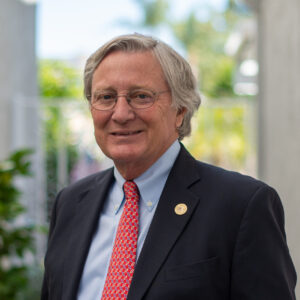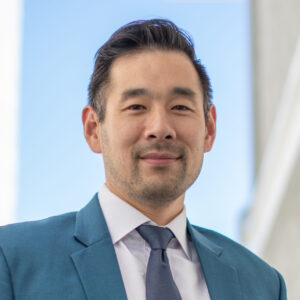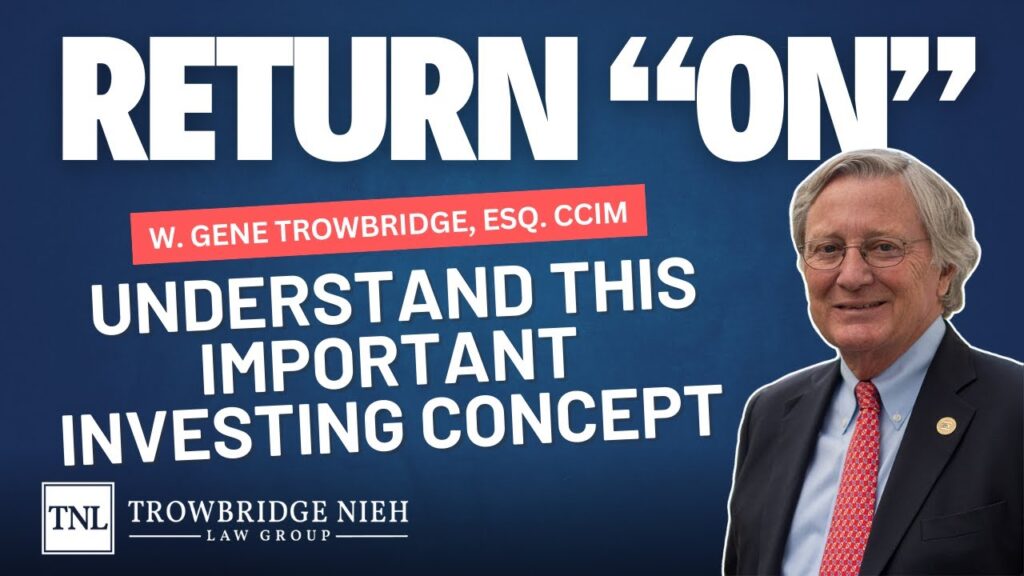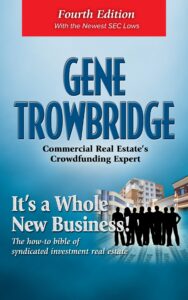How We Became Syndication Attorneys – TBD with TLG #5
Hear Our Syndication Stories!
In this week’s episode, Gene and Jonathan share their stories about how they became syndication lawyers, and what they learned along the journey.
Transcript
 | GT | - [Gene] Good morning, Jonathan? |
 | JN | - Good morning, Gene. How is it going? |
 | GT | - How are you doing today? |
 | JN | - I'm doing great, how are you? |
 | GT | - That's good. So am I, it's a beautiful day here and you know, Jonathan, this, excuse me, this session we got a question from someone who listened to one of our previous to TBD podcasts. And the question was, how did we ever get in this mess? No, it was really how did we ever get to become syndication attorneys? And that's an interesting question. So I thought if it's all right with you, I'm kinda springing this on you but because it is to be D, TBD, right? I'm kinda springing it on you, can we talk about that? |
 | JN | - Yeah, sure. I mean, I guess I can go first since my story is probably a little bit shorter than yours. |
 | GT | - Go right ahead, I'm interested. |
 | JN | - I mean, you've already heard how I learned about syndications and I kinda got into this business but for those that don't know me, I graduated law school in 2016. So I've only been an attorney for about four years now. I went to UCLA Law and one of my favorite classes that I took there was actually, it wasn't even a law class. It was called Real Estate Financial Analysis. It was taught by a professor through the business school actually, his name was Paul Habibi but basically the class was about how to analyze a commercial real estate deal. So I don't know if anyone's taken like CCIM class, CI 101. It was basically, right? Where you go through case studies for commercial property, like an apartment complex. You calculate the net operating income, the expenses, and then you get the IRR and that's how you analyze a commercial deal. And I thought that the class was great. After I took that class I was like, dude, I wanna get my friends together. I wanna go out and buy an apartment complex. So we actually looked for a little bit to buy an apartment together. I didn't know it at the time but that was a syndication, right? So when I met Eugene I told you that story and you're like, that's syndication. And I was like, oh my God, I had no idea but kinda how I got to where I am now. After or I guess in law school, actually, I had a internship at a company called Patch of Land. They're a real estate crowdfunding website, right? So they do Rule 506 offerings and that was really my first time, I guess working in syndications. It's not really syndications well, I guess it is a syndication, right? Even if you're doing a 506 you're pulling together investors for the purpose of real estate. And I don't know where I'm going with the, oh, so I remember where I'm going with the story now. So when I had that internship at Patch of Land, I worked for the General Counsel, Amy Wan at the time and I guess they had hired your firm Gene, right? To do some work for them. And that's how you guys met and then when Amy left Patch of Land, she joined you guys. And then I graduated law school and I needed a job so, Amy was like, hey, come with me, come work with me with Gene. These are great people. And that's how I met Eugene and four years later, here I am doing syndications with my friend and mentor, Gene Trowbridge. |
 | GT | - And Amy went on to her own pastures and we stuck together. And when we just formed Trowbridge Law Group which was kind of a reorganization of where I had been for a long time before I became a partner with Jillian and Kim. You came with me and that's cool. So let me ask you a couple of questions. |
 | JN | - Sure. |
 | GT | - What is your workload, what does your work include? What do you do as a syndication lawyer? |
 | JN | - Yeah, so, I mean, we start to finish for our clients. We set up the entity structure for them. So, usually we formed two LLCs for our clients. One LLC is the investment LLC that holds the property, and that's the one that all the investors are buying interests in. And then we also set up the manager LLC and that's the one that the sponsor kind of controls and takes their fees and their distributions through. And then we also draft all the offering documents for our clients so, the PPM, Private Placement Memorandum, the operating agreements for those LLCs that we form and the subscription booklet, which is the, I guess, the contract that the investors sign and agree to invest in their deal. And throughout that process, I mean, obviously we're advising our clients on the securities laws, what they should and shouldn't be doing. You know, a lot of talking with clients on the phone, a lot of emailing back and forth. Yeah, I mean, that's the basics of what we do for our clients. |
 | GT | - So did you have a course in law school on typing? |
 | JN | - No, I didn't. I mean, I did take securities law actually or securities regulation and we did, I mean, we learned about obviously, like how we test, how and when a company becomes a public, right? A public reporting company. I think we did actually cover Regulation D but it was very, very brief which is funny because when you look at the amount of capital that's being raised, I think people think like, oh, the majority of capital must be raised on public markets but in actuality it's probably 50/50, right? There's 50% of capital is raised on Wall Street, right? Where the other half of it is private capital. And the majority of that is through Regulation D so I found it kinda interesting that we didn't really learn that much about Regulation D in law school. |
 | GT | - It doesn't sound like, and I know what you do, but it doesn't sound like in your explanation you go to court very often. Sitting in front of the judge, in front of the bar, no. |
 | JN | - Yeah so, I mean, we're transactional attorneys, right? So for those that don't know, there's litigation attorneys. Attorneys that practice, you know, go to court and argue cases. And then the other side of that is transactional attorneys like us who work on transactions. |
 | GT | - Did you ever think you wanted to be a litigation attorney? |
 | JN | - I did actually. I took a class called a pre-trial civil litigation and it was fun. You know, it was fun like arguing cases and the whole process of it, right? Like it's very, I guess it's not boring, right? Like there's always something new and exciting about litigation. So, but for me at least, I mean, I'm not very good at public speaking. I hate public speaking so that like, I don't know. I think transactional side of law definitely fits my personality more, so yeah. |
 | GT | - Yeah, I understand that. So today you spend all of your time working on deals that clients bring to us and mentoring the clients and doing the paperwork and seeing that they get off and running in their money raising and right down to the point of when they close the deal. You coordinate with Dave, our operations manager, the filing of the Form D with the SCC and the filing of the state notices. So it's a lot of work. |
 | JN | - It is. |
 | GT | - Takes some time. Takes three or four weeks to do an offering from start to finish, right. |
 | JN | - Yeah, yup. |
 | GT | - But isn't it fun when repeat customers come back? |
 | JN | - Yeah I mean-- |
 | GT | - And when they come back into it again, it's so nice, it's gratifying. |
 | JN | - Yeah. |
 | GT | - And I guess I was gonna ask you that question, I kinda screwed that up. What's gratifying about the job? |
 | JN | - Well, it's just the relationships, right? The people that we meet, our repeat clients, right? Like some of them I've done five,10 deals already with them, I've only been an attorney for four years. And some of these people I would consider my friends. But not only that going to events... You know working in real estate is so much fun, right? We get to travel, we get to meet new people every day. We get to work virtually remotely, set our own hours, which is great. |
 | GT | - Yeah, we're working virtually now, aren't we? There's no doubt about that. That's good, that's a good story. So a lot of people who go to law school come out of law school and they really don't have, and this is my impression, they really don't have an idea of what they wanna do because, is my recollection was law school taught you all these classes you need to know so you could pass the bar. |
 | GT | - But it wasn't really a training for a job, it was pass the bar. And then you went off, your perfect example, you went off and got an internship in a real estate syndication company and by God, that's what you're in. You're not doing divorce law or criminal law. So I would think that some of the attorneys are out there. People are out there in law school who might be listening to this or thinking about going to law school can say, this is a path, this is a good clean path, no courtroom experience, very few securities attorneys get shot by their clients. Like you might if you're a criminal law attorney. And so, that's fine. And it really isn't... My experience, it really isn't all that stress filled of a job. Some of the attorneys we work with Jonathan, who handle the loan documents and work for the banks and getting the loan close. I can't tell you how many of those attorneys have said to me, I'm up till two or three in the morning making my hourly wage so that this deal can close tomorrow and I'm on a deadline. We don't really have that much of a pressure deadline 'cause our work is done three or four weeks before the loan closes. We might have some last minute things. Maybe there's a last minute agenda or whatever but our work is all pressure-filled right away at the beginning so, we get the documents out to the clients so that they can start raising money and then it kinda comes down. Isn't that the way you feel about it? |
 | JN | - Oh yeah, definitely. I mean, I never feel like I'm under any amount of stress, honestly. I mean, I do get stressed but not to that level where you have to... First of all, yeah, hit those deadlines but also at a normal firm, like a big firm, you have billable hours that you have to reach every week, right? Which I'm super lucky that I found you and I'm working with you Gene because I couldn't imagine my life working at a big law firm trying to work 80 hours a week, 100 hours a week, trying to hit my billable hours. That's just crazy. |
 | GT | - Yeah, we don't do billable hours and we never have. I've never done that in my experience and I knew that that worked for me. So I was interested to hear you say that you don't feel like you're ever under any pressure. |
 | GT | - It's that the truth when the phone rings and you know it's me? |
 | JN | - No, Gene, I love it when you call me. You call me every day which is a-- |
 | GT | - I know, I'm like that. Well, your path and my path getting into this we're a little different. I've kind of had three careers in my life. My first career was as a commercial broker. Well, no, it was as a real estate broker. I graduated from the University of Minnesota and an accounting degree and I wanted to be a salesman. And in those days, if you weren't an engineer you couldn't sell a computer or an airplane. So about the biggest thing that I could sell in dollar value was a house. And so, I started out selling houses in Minnesota and those rascals were you know, 25 to $35,000. And the commission may be, if you sold one, you might've gotten six, 700 bucks which was a lot of money back in those days but I wasn't particularly good at it. And I didn't think it matched what I knew about accounting and balance sheets and income statements. And I was at an event once and one of the fellows at the event asked me if I had heard about the CCIM program. And I said, no and he told me about it, that it was education for commercial real estate people who wanted to work in commercial real estate. So I went off and signed up for the first one, CI 101. And I remember Jonathan, you took CI 101, did you take it from me or from Carmella? |
 | JN | - No, it was, shoot, I don't remember his name. It was like one of those blended courses where-- |
 | GT | - Oh, it was a blended course, okay. |
 | GT | - So anyhow, I took CI 101 where you learn that IRR and all that financial stuff and I loved that. And I rushed through the CCIM program, took all the courses and then decided that I would give up selling houses and start to concentrate in a non-commercial real estate. So I did that for several years and so, that's the first part of my career maybe seven years in being a broker. And then we moved to California and in moving to California I thought I would pursue something that I had just done once or twice in Minnesota. Along with my friends, we bought a couple of small apartment buildings and I put the deals together. I managed the property, I raised the money and I kinda liked that. So when I came out to California I thought that's what I would do. I would be a syndicator. And so, gee, for 13, 14 years, that's what I did. I was an actual syndicator. My first deal was a mobile home park and I didn't like managing senior mobile home parks. That wasn't gonna work and I tried one or two deals on apartments and I didn't like managing apartments. So one way or another, I got into an arrangement with a contractor who could pour concrete. And we decided to build storage facilities, self service storage facilities. And we got an arrangement with public storage that if we went out and found the dirt that they liked and built a building to their specifications and got it 50% rented, they would buy it from us 'cause those days they weren't building their own projects. So we did that, so I ended up doing that like 14 partnerships with two properties in each partnership, so we built 28 of self storage facilities down here in Southern California in the Tri-County area. And it was an interesting job and I was raising money through the broker dealer community which was kind of a head trip because I would take my offering to the licensed representatives and if they like it, they would sell it to their clients and I barely met any clients. My clients really were the registered reps, the series seven, the certified financial planners, the registered investment advisors. And they had the relationship with the clients. And I was ideally suited to go in there and talk to those guys in my suit and everything, it just worked for me. And all of a sudden, I'm at a point where this one year I sent out and I remember the number 1676 K-1s. And Jonathan, I spent three months licking stamps and sealing on, sending reports out. And I had maybe 10 different companies who were raising money before me. And the biggest company, the company that got me started came to me and said, you know, you don't raise money on really big deals. By the time we get our due diligence done and we're ready to raise money for you, the other companies that are faster have already sold everything. So we'd like you just to bring products to us and we'll be your only company. And of course they only work on what's called a best efforts basis. So they would require me to go out and tie up the property and use all my money to get it going and then take it to them and hopefully they'd raise money. Well, that seemed pretty risky to me. And my strategy had always been that I had a certain amount of money and so, when I started a project I knew I could complete the project just with my own money. And at the time it was it's about $2.5 million. And so, I'd go out and I'd find a project and I do all the due diligence I needed. I go to the broker dealer community and they'd say, well, what happens if we don't raise enough money in time and I'd say, that's fine, I can close the deal and then you can back fill, which is the term and so, they thought that was great. Well, another thing that this company said to me, other than we want you to provide us product and we're the only one who's gonna sell it. We want you to raise more than $5 million at a time. And so, that challenged my model. Whether I had 5 million or didn't have 5 million, it wasn't terribly important, I wasn't gonna put everything at risk to do these projects when they're only giving you best efforts and I've got $5 million committed. So one day I went home and Kay and I sat around the kitchen table where all the great decisions in life are made. And I said, you know, I need to either grow this business. I'm gonna have to hire more people. I'm gonna have to get a bigger office space. To do $5 million raises and do all this is a lot of risk. I think I'll quit doing that and I think I'll go to law school. I always wanted to go to law school. And this is a great time for me to go to law school and I'm only gonna go for one reason. So I can be a syndication attorney, a securities attorney when it's over 'cause all these securities attorneys I work with, they've taught me a lot and I can do that job better than they can because I know both ends of it. So in one 25 minute conversation, I went back and I called that company and I said, you know, I've just decided to shut down the business. I won't be bringing anyone anymore offerings. And I had about six or seven years of deals that were out there where I was gonna collect fees and my ownership was gonna pay off. And so, had a steady stream of income. My two kids in grade school and my wife was working full time. And at 45, I went off to law school, 45 years old. And first semester in law school, first quarter, whatever it was, I went to career night. And I thought for sure that with my experience, my real world experience, when I got out of law school, some big law firm would hire me in their syndication department. What I found at career night is there's age discrimination in the recruiting of attorneys because all they want is like you said, Jonathan, they want someone to come in and work 100 hours a week and pay them dirt. And that just wasn't gonna work and I said, no, I don't think so. So I knew from day one, I was going to be a sole practitioner, I knew it. So I planned the rest of my law school experience gearing up for being a sole practitioner. And in my last semester, I took a class on starting your own practice. And part of the class was a business plan. You had to go out and find an office location and put a budget and all that together. And I did that and I took the bar and thank God, I passed the bar the first time, just like you did Jonathan. And now I was stuck. Now I passed the bar. Now I needed to do something with it. So I went back and that office space was still available. And I pulled out my business plan and put it to work. And really, really the rest is history. I just started using my process of education-based marketing. And I started teaching real estate people about syndication and my experience and what I had done and built a career. So in 2008, I was doing pretty well on my own but my business was growing and I ran into lady Kim, Kim Taylor, and she became a contract attorney with me for a couple of years and then my first partner. And then while we were partners, we ran into Jillian. We're always at the same events and competing with each others. So Jillian joined Kim and myself and our firm was Trowbridge Taylor Sidoti. And not too long after we started that, Kim decided to leave California for income tax reasons and lifestyle and moved to Florida with her husband. So then it turned out to be Trowbridge Sidoti. And we did that from gosh, '16 through the beginning of 2020 and then one reason or another, it just decided it was good that we split Kim, excuse me, Jillian has some goals on what she wants to do with the law firm and she's 30 years younger than I am. And I have some goals I wanna do in the last five or six years that I work and they weren't compatible. So we bid our farewells and we're on our own and now it's back to where I was before 2014, 2008, Trowbridge Law Group with the partner and I'm loving it. We've got a staff, we all work together. It's an interesting time to start a business, Jonathan. COVID and working virtually and everything but I think it's gonna be great. You might not know that but Jonathan just got married and he's gonna move to San Francisco in the next month. I'm down here in Orange County. Our public relations lady lives in LA. Our marketing lady lives in Nashville. And our systems manager and our operation manager live down by San Diego in Murrieta Temecula Wine Country. So when we started Trowbridge Law Group up we knew we would be all working virtually and not have an office and here we are. And I think this is great. So that's how we got to be there. Three careers for me, real estate broker, real estate syndicator and syndicator. If I had gone to law school 20 years earlier, Jonathan, I would have wanted to been a litigator. |
 | JN | - Really? |
 | GT | - 'Cause I like to be on the podium. I like to do that, I like to think like that. |
 | JN | - I can see that. |
 | GT | - But on your own... Right away the first three things I did is I helped my wife out with some friends of hers that were getting divorced. And I went to carrot court three times in family law court and the base is like, I should have shot myself and I thought oh, that's just absolutely terrible. I'll tell you one funny story and then I'm through. I got a guy, now we're in civil court. Jonathan, you appreciate that I'm in civil court. We're in a divorce trial. And I got a guy, the ex-husband to plead the fifth. When I got ahold of his financial records and I realized that he'd been lying. And so, he pled the fifth and the judge looked at me and the judge knows I'm a new attorney 'cause he knows what my number is. And he said, well, what do you think about that, Mr. Trowbridge? And in all my legal education I said to the judge, well, if I'd been lying as much as he has during this whole trial, pretty soon I would have pled the fifth too. Which is totally a ball. I mean, we're in a civil court and the guy pleads the fifth which is a criminal deal and I should have known the difference, but I didn't. And you know, I won that case really big for my client. And then, that's the last time I've been in front of the bar as an adversary. So that's my history. |
 | JN | - Should we expand our practice areas to family law? |
 | GT | - No. No, no, no, no, no, we don't wanna do that. Now, you and I have talked about expanding our law firm in bringing some other attorneys in who might do something other than just a securities law but I don't think litigation would be the... Let's just push papers, okay? Let's be transactional attorney. So Jonathan, do you have anything else to add? I think we're just about out of time here. |
 | JN | - Well, I just wanna say like the whole point of this, I guess, podcast is the show collectively, the keyword is collectively that our firm has a lot of experience in syndications, right? Not just the legal side of it but actually in the real estate, in the deal aspect side of it, so. |
 | GT | - You know, for my years as a syndicator and then all the years I've been doing this now from the legal side for 27 years, collectively I've been involved in over $5 billion worth of equity raises and a lot of clients and a lot of deals. So I've seen a lot. |
 | JN | - And I think that's helpful when we have the homework call from the investors, from the syndicators who just wanna talk about doing this. I feel very comfortable in taking that call and discussing things with them. And that's good. All right, so everyone should remember that every Thursday at noon, California time, we'll be doing another episode of "TBD with TLG". The topic is always to be determined at the last minute. And the Trowbridge Law Group with Jonathan and myself are happy to have you with us and I hope you join us the next time. |




